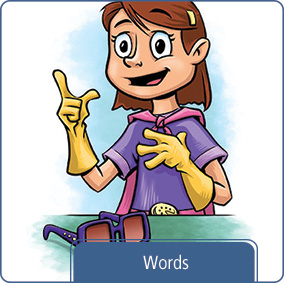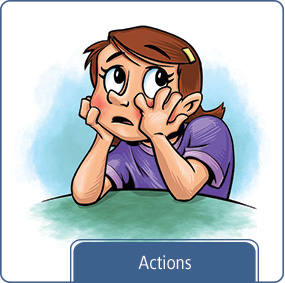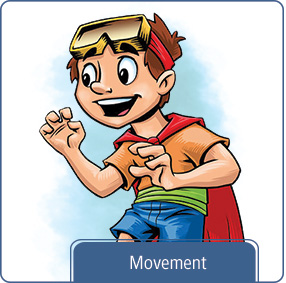The Types of FTD
 We thought Dad was just being mean when he watched TV instead of playing with us. And he started to argue with Mom a lot. It was confusing because we know he loves us. One day Mom told us he does those things because he is sick.
We thought Dad was just being mean when he watched TV instead of playing with us. And he started to argue with Mom a lot. It was confusing because we know he loves us. One day Mom told us he does those things because he is sick.
FTD is a hard illness to understand. It makes our dad behave differently than he did before. Other people could have different symptoms. Nobody’s experiences are exactly the same. Your experiences with FTD might be different from ours, but we’re glad you’re here. Learning about FTD has given us way more strength than we ever thought was possible!
When you have a cold you sneeze, have a runny nose and maybe you have a fever. These are the “symptoms” of a cold. The of FTD are harder to recognize. Someone with FTD may not look sick.
Because FTD is a in the brain, it can cause many different kinds of problems. Some people with FTD have problems talking or understanding words. Others start to act oddly or forget their manners or say mean things. Someone else with FTD may have trouble walking or may fall because of poor balance. FTD affects different people in different ways.
This all happens because their brain is not working like it should, not because the person wants to be mean or because you did anything wrong.
FTD is hard on everyone
When someone has FTD it is hard for them AND it is hard for the people around them. A mom or dad who once helped YOU will now be the one who needs help. Some of the symptoms can seem strange or even scary.
These changes can be upsetting and confusing, especially for kids. You can learn about FTD and learn ways to deal with it. When people work together – a whole team of family members, friends, doctors, teachers and neighbors – FTD can be easier to deal with.
FTD – The Trouble Maker
There are many ways FTD can cause trouble in the brain. Click on the boxes below to learn about some of the most common problems it can cause.
 |
 |
 |

